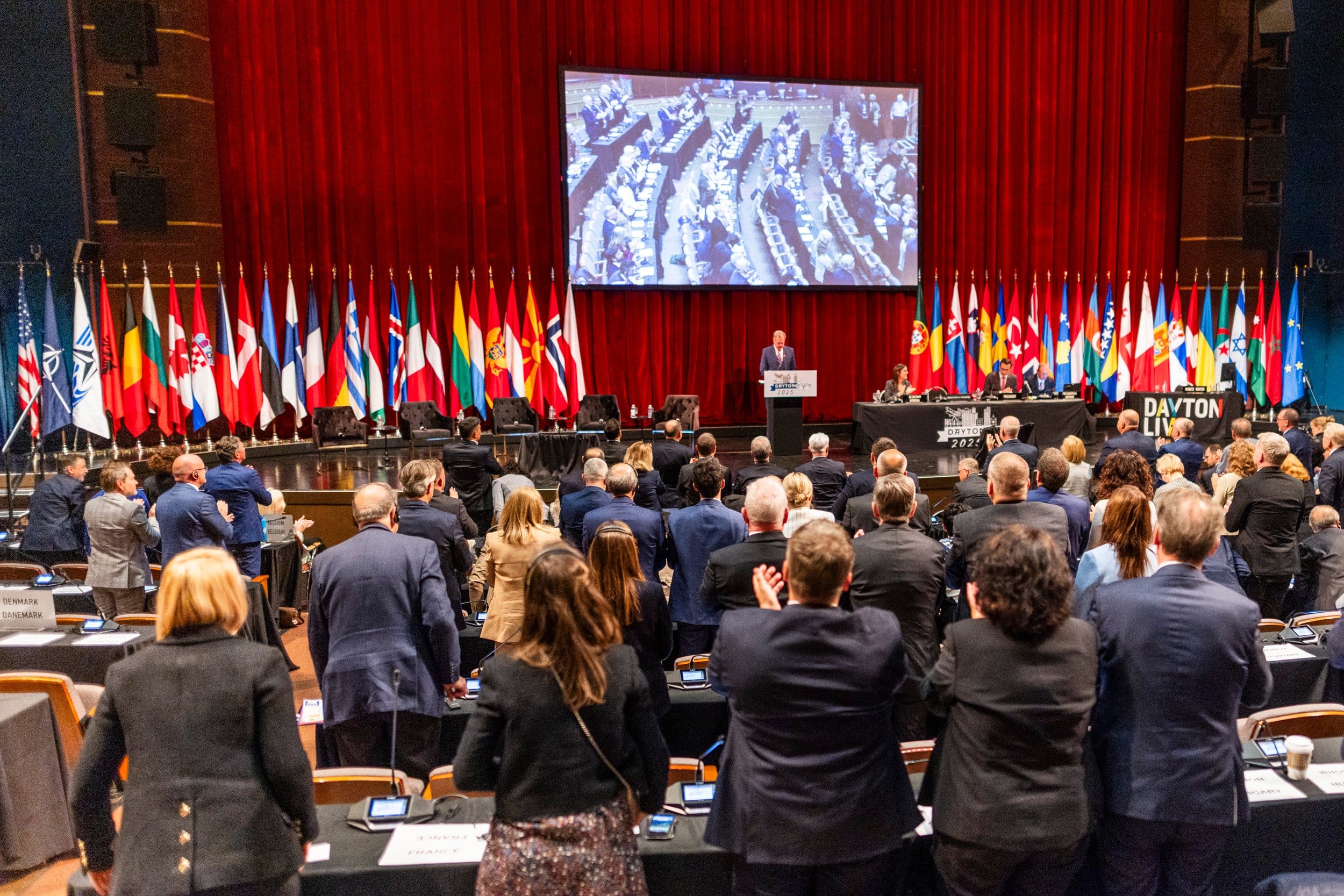NATO Members Called for Enhanced Defence Spending Amid Alliance Restructuring
European NATO members face pressure to boost defence spending amid calls for equitable burden-sharing, reflecting strategic realignment and financial commitments.

European nations within NATO are confronting unprecedented pressure to increase defence spending and embrace more equitable burden-sharing arrangements as the Alliance prepares for a critical period of strategic realignment. The calls for enhanced financial commitments have reached fever pitch following recent parliamentary deliberations that outlined a pathway toward what officials describe as fundamental restructuring of transatlantic security responsibilities.
The NATO Parliamentary Assembly concluded its first United States session in over two decades with stark warnings about the need for immediate action on defence investments. Meeting in Dayton, Ohio, over 240 lawmakers from the 32 NATO allies and partner nations adopted policy recommendations that will shape discussions at the Alliance’s upcoming summit in The Hague.
‘Let us reaffirm we stand united, strong together, guided by the clarity of our mission to defend peace, security and democracy,’ declared Marcos Perestrello, President of the NATO Parliamentary Assembly, underlining the urgency of current deliberations.
We do news. We don’t do cookies.
Our website does not collect, store, or share any user data. If you enjoy our content and value your privacy, consider supporting us.
European Defence Renaissance Gathers Momentum
The mounting pressure reflects broader trends within European defence circles, where spending increases have accelerated dramatically since Russia’s invasion of Ukraine in 2022. Poland has emerged as a burden-sharing champion within NATO, escalating its defence spending from 2.7% of GDP in 2022 to 4.2% in 2024, with projections reaching 4.7% in 2025. This represents the kind of financial commitment that Alliance leaders increasingly expect across member nations.
European members of NATO have experienced what defence analysts characterise as a renaissance in military spending , particularly accelerating in early 2025. The continent appears ready to assume greater responsibility for its own security, potentially providing relief to the United States, which has traditionally served as the Alliance’s primary financial contributor.
Current financial arrangements reveal the scale of disparity that concerns Alliance leaders. NATO expects direct funding of approximately $4.9 billion from members in 2025, though the six wealthiest nations shoulder a disproportionate burden. Meanwhile, European allies and Canada have allocated $87 billion in various forms of assistance to Ukraine, representing 31% of total bilateral support for the conflict.
Strategic Implications Beyond Traditional Metrics
The Assembly’s focus on burden-sharing extends beyond conventional defence spending metrics to encompass broader security challenges. Priorities include raising defence investments, boosting resilience against threats from authoritarian regimes and ensuring Ukraine’s democracy, independence and territorial integrity are respected in any peace settlement.
‘We must unite around a clear message: the Summit must strengthen and rebalance NATO so that it remains the essential bulwark keeping the citizens of Europe and North America safe,’ Perestrello emphasised, articulating the fundamental stakes of current negotiations.
The parliamentary recommendations will feed into what many consider the most consequential NATO summit in years. Leaders will confront decisions about the Alliance’s future architecture whilst managing pressure from the Trump administration , which has called for defence spending to reach 5% of GDP – a target that would represent a fundamental shift in European fiscal priorities.
Balkan Lessons for Contemporary Challenges
The Dayton session deliberately commemorated 30 years since the accords that ended conflict in Bosnia and Herzegovina, drawing parallels between historical Alliance solidarity and current challenges in Ukraine. This historical perspective provided context for contemporary strategic discussions about European security dynamics.
‘When we look to the Balkans, we can all know with confidence that it’s important for us as an Alliance that we all work together, that we rise up together in the face of aggression,’ noted Congressman Mike Turner, head of the US delegation to the NATO Parliamentary Assembly.
Former Swedish Prime Minister Carl Bildt, who played a crucial role in negotiating the Dayton Accords, cautioned against drawing simplistic lessons from the Balkan conflicts for Ukraine. ‘This is a different kind of conflict because what you have in Ukraine is Russia trying to rebuild an empire with state aggression of the most obvious kind,’ he observed.
Preparing for Strategic Rebalancing
The Assembly’s final declaration, entitled ‘Taking NATO Deterrence and Defence to the Next Level at The Hague Summit’, outlines specific mechanisms for strengthening the Alliance through enhanced burden-sharing arrangements. Committee discussions addressed Russia strategy, drone warfare capabilities and protecting Allied societies from Chinese disinformation campaigns.
Deputy US Secretary of State Chris Landau emphasised the Trump Administration’s willingness to engage constructively whilst maintaining pressure for increased burden-sharing. ‘I’m here to express the Trump Administration’s willingness to listen and play a constructive role for all parties,’ he stated, reflecting a balance between diplomatic engagement and financial expectations.
Ohio Governor Mike DeWine highlighted the fundamental role NATO plays in providing security for citizens on both sides of the Atlantic. ‘We very much appreciate NATO’s commitment to using political and military means to guarantee the freedom and security of its members,’ he told the opening ceremony.
The parliamentary assembly serves as an essential link between NATO and national parliaments, fostering transparency and understanding of Alliance objectives amongst legislators and citizens. As the organisation celebrates 70 years of parliamentary diplomacy throughout 2025, its recommendations carry particular weight in shaping the Alliance’s next evolutionary phase.
The coming months will determine whether European nations can meet the financial and strategic commitments necessary to sustain transatlantic security arrangements in their current form, or whether the Alliance must confront more fundamental restructuring of responsibilities and expectations. With emerging security challenges extending beyond traditional military threats, the burden-sharing debate encompasses everything from cyber security to climate resilience.